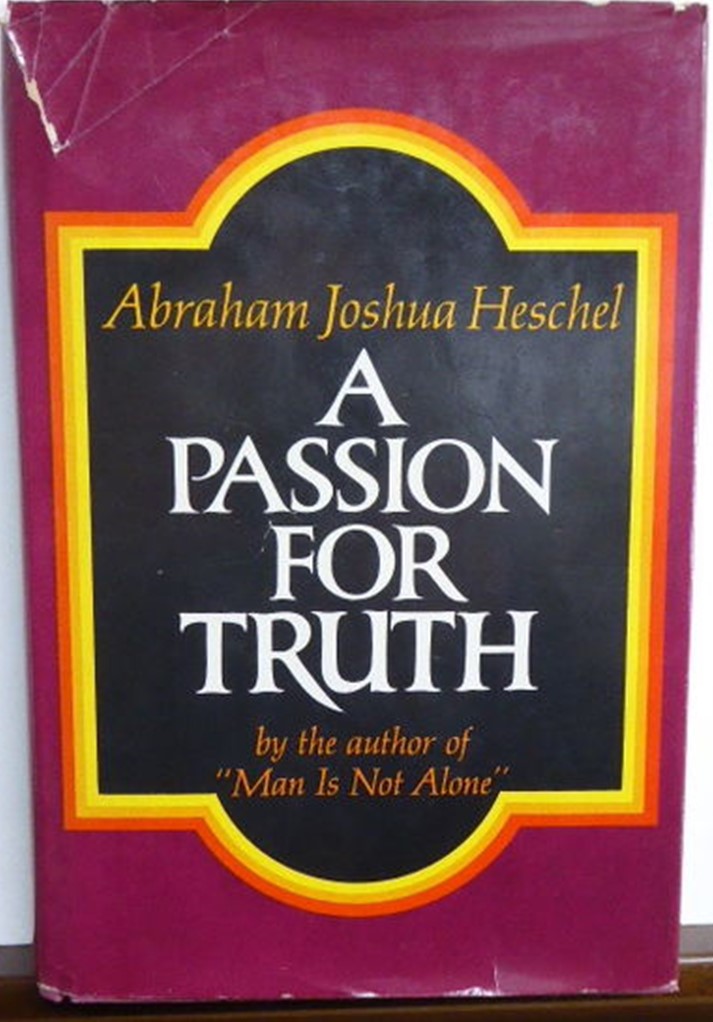A Passion for Truth

A Passion for Truth (1973)
This book was published posthumously and is significantly autobiographical. It compares and contrasts the life and thought of the enigmatic Hasidic Rebbe Menahem Mendl of Kotzk with that of the Danish philosopher Søren Kierkegaard. A secondary contrast that is that between the Baal Shem Tov (considered the founder of Hasidism) and the Kotzker Rebbe, a duality that Heschel maps onto the mind and soul.